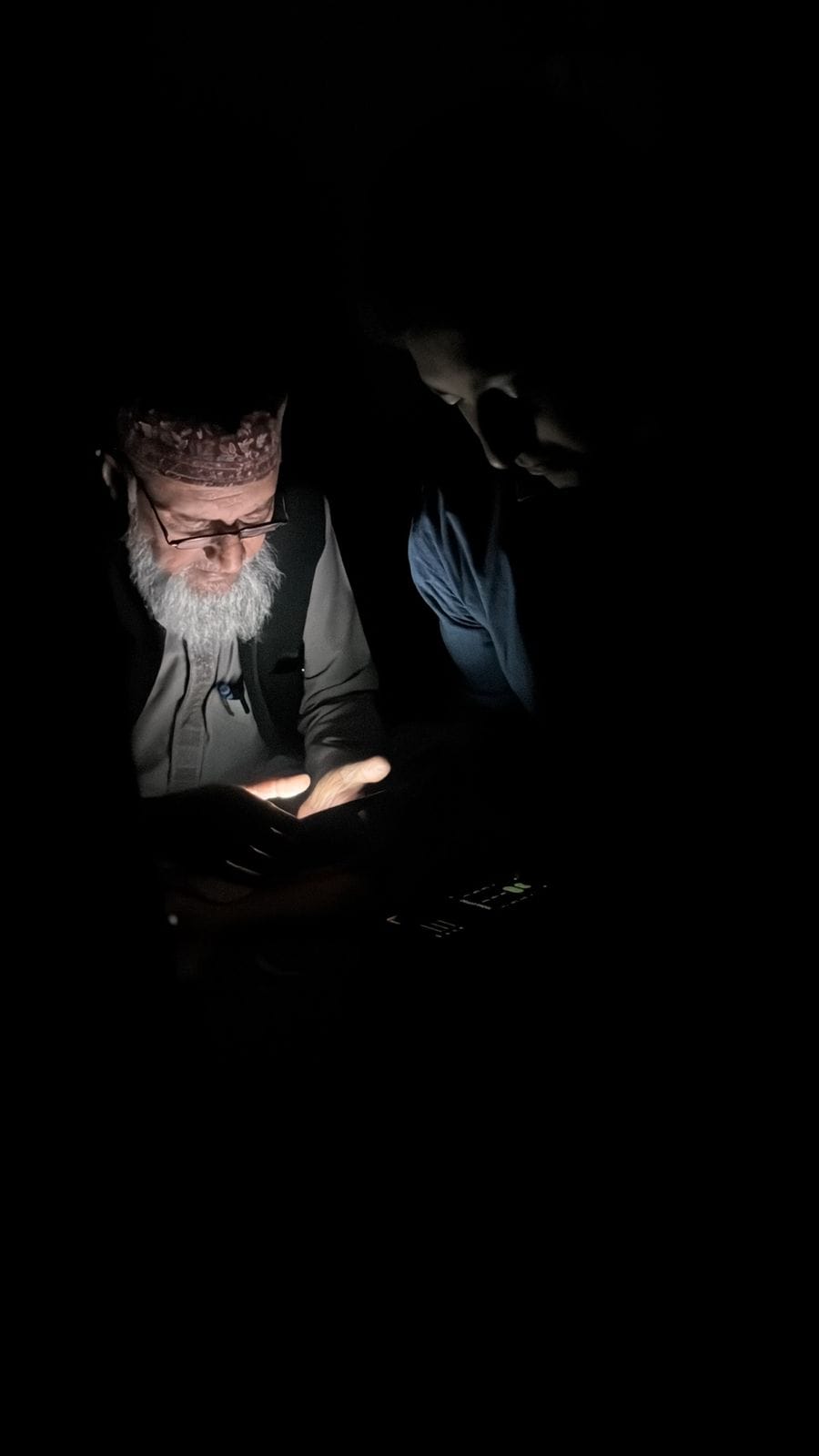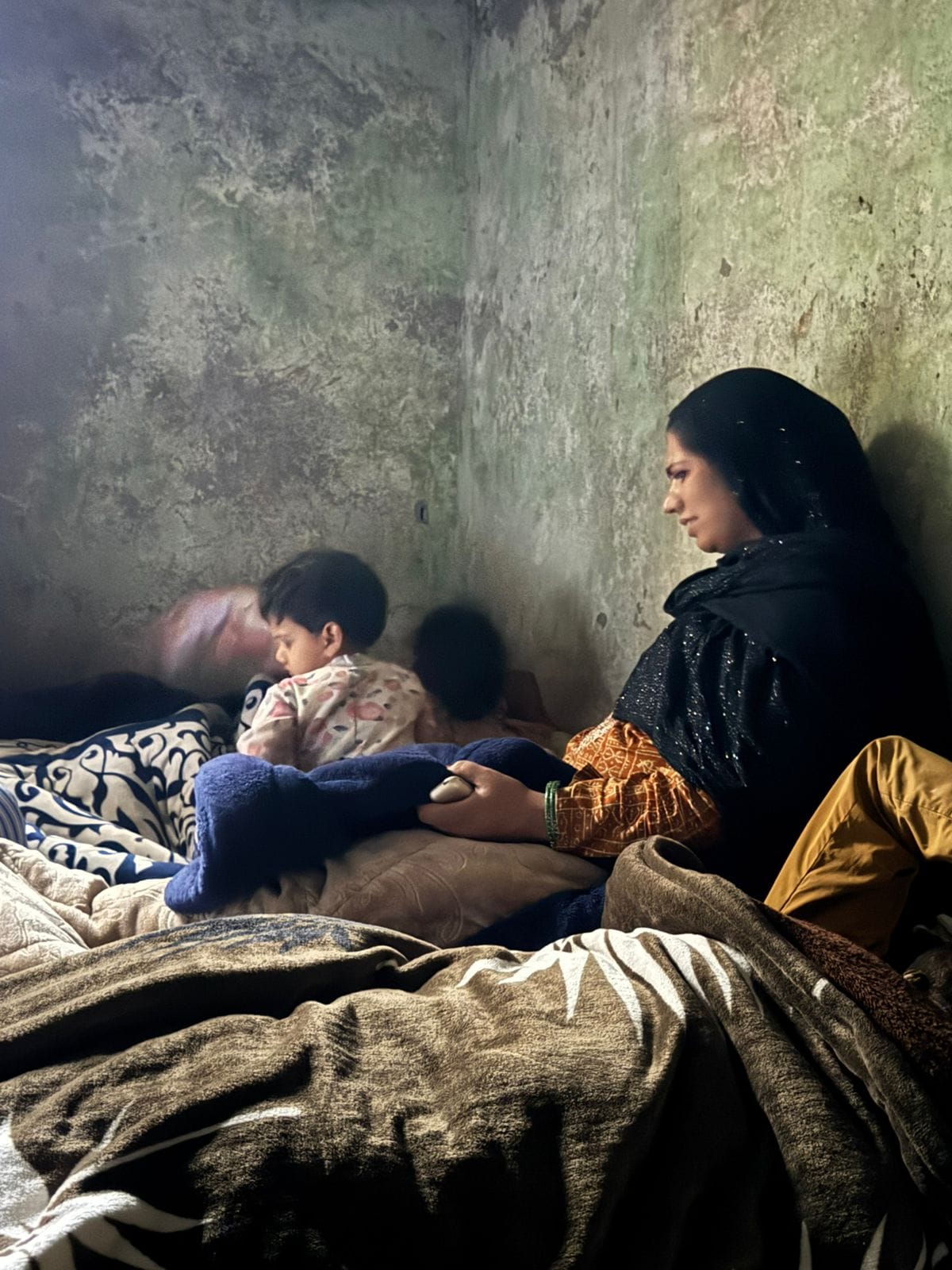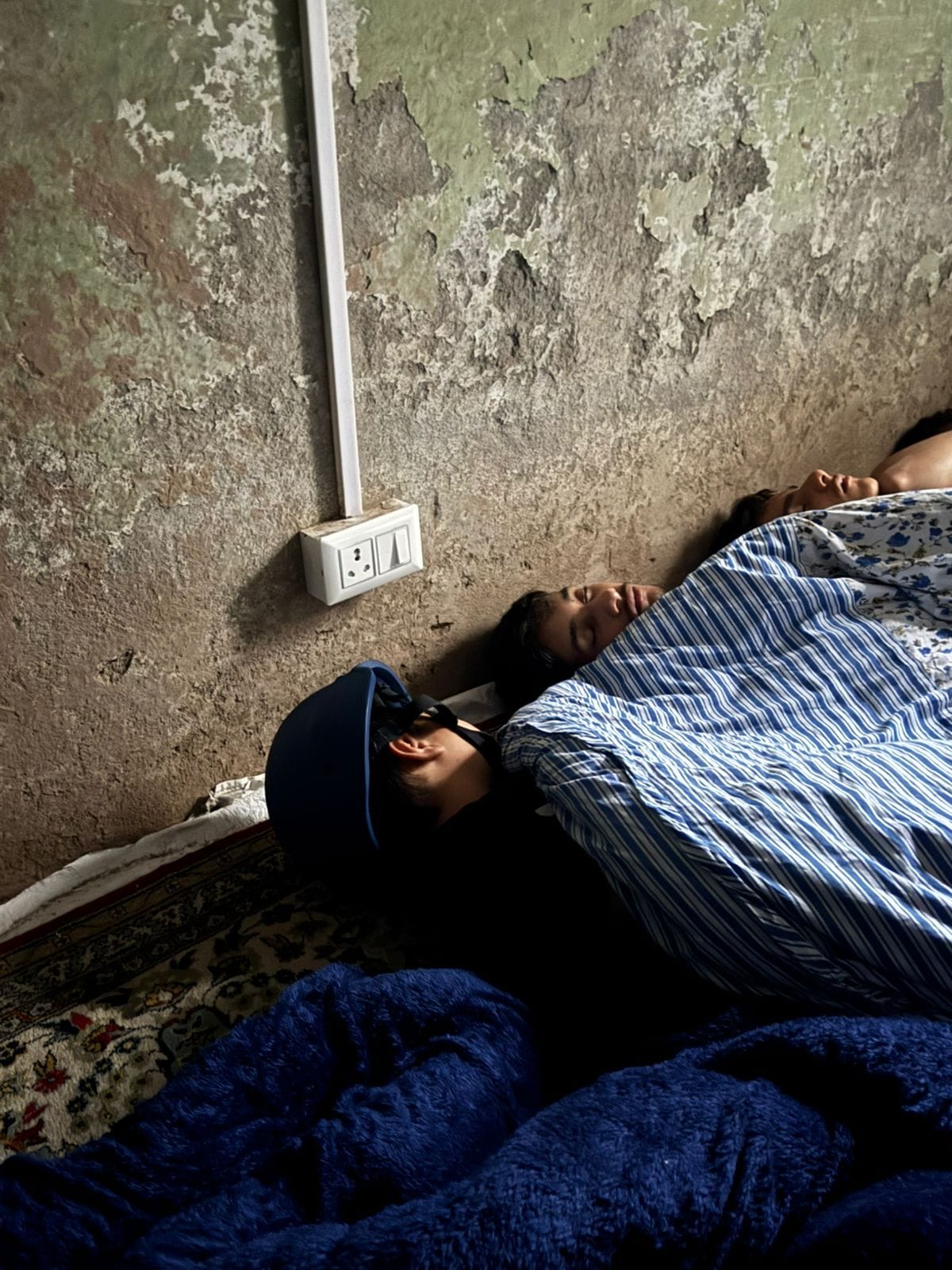Poonch: The signboard read ‘Poonch—5 kilometres’.
My colleague Suraj and I had travelled nearly 20 hours by road. It was 6 pm, and the first thing that struck me was the urgency in the air. Shopkeepers were rushing to pull down shutters, workers were wrapping up for the day, and high-speed vehicles sped past. The entire town was racing to get home.
“Do not enter Poonch right now. There will be a blackout in an hour. You will get killed. No one lives there anymore. Come tomorrow morning. They (Pakistanis) do not throw ‘golas’ in the morning,” a man closing his kirana store warned us while pulling down a brown-colour, iron shutter.
My colleague, Sajid, was in Poonch a day earlier. He clearly warned me not to visit the area in the evening. So, I followed what everyone advised and asked the car driver to pull over roughly three kilometres before town. It was 8 pm by then. I prepared to disembark from the car to record a piece-to-camera to establish we were on the ground.
That is when we heard it, a loud thud. A streak of light cut through the darkness and hit the ground nearby, followed by a blast that echoed, like an explosion. It caught me off guard. I had not expected shelling.

There was no place to hide. We were exposed, open skies above us, hills surrounding us, and an empty street ahead. I instructed the car driver to speed up. My hands shook as I called my editor, my voice on the edge of breaking, “I do not know what to do. This area was not supposed to witness shelling.”
I credit my editor, Nisheeth, and Suraj for calming me down.
Suraj is an introvert. He is not very good at expressing emotions, be it love, anger, or even terror. But I had been on enough assignments with him to know how he feels, even when he does not utter a word.
That night, Suraj was terrified, though he would never admit it.
Our car raced through the dark, dodging over a dozen shells until we finally reached the Surankote block, an area everyone had termed ‘safe’ in the Poonch district. An area that, until that night, had never witnessed shelling.
Basement, prayers & musings on death

It was a pitch-dark night in the lush green vale of Poonch district of Jammu province in Jammu and Kashmir. My colleague Suraj and I had just returned to our hotel in Surankote after our long day of travel and reporting. We started filing our stories and were still trying to process the loud explosions we had heard.
Surankote, everyone had told us, was safe. Not a single shell, they said, had ever landed in the small town, nestled along the Pir Panjal mountain range.
At 11 pm on 10 May, as I stepped out in the lobby to call it a night after nearly 20 hours of a hectic day, which included evading explosives, a loud blast cut through the silence. Something landed right in front of our hotel. The windows rattled. The building trembled. For a moment, it felt like an earthquake.
A minute passed.
Then, another explosion, louder, more intense. And then three more, in quick succession.
I heard footsteps rushing in the lobby. People were murmuring prayers. “La ilaha illallah, Muhammadur rasool Allah,” some whispered, over and over.
Every face reflected unpredictability and fear. But more than fear, I saw something else—vulnerability. And then, surprisingly, resilience.
The hotel owner, a maulana sahab, took us to the basement of his hotel—a space he had built a few years ago as a storage room. That was the only safe shelter he could offer.
Strangers held hands and helped one another as the loud explosions continued. It was a two-room basement, a total blackout, and nearly 25 people huddled inside.
Ten minutes in, another blast. This time, it hit an adjoining hotel. My heartbeat raced. I held Suraj’s hand. Another journalist from an international media organisation sat beside me. His head was in his hands. “I thought Surankote was safe,” he whispered.
But what silenced my fear and anxiety was a young boy, maybe 10 or 11, who kept repeating the same thing, like a tape recorder stuck on a loop, “I am afraid, bhaiya. Will we die today?”
It was then that the fragility of life truly dawned on me. I would either survive to tell this story or die, becoming just another number. I wanted to survive. I wanted to tell their stories. But who could know?
The international reporter turned to me and asked if I had my bulletproof jacket. I said no, it was in the car. That night, I learned a lesson. In a conflict or, nearly a war zone, always keep your bulletproof vest and helmet on you. Always.
A few hours later, the same reporter retrieved his helmet from his room and handed it to the young boy.
The boy immediately put it on. And within minutes, he calmed down.
The helmet made him feel safe. It became his guardian. He slept with it on. And when he woke up, he patted it gently and kissed it. The helmet had become the answer to his prayers for the night. It would save him.
I sat, looking at the people around me, their hands cupped, praying. There was an uneasy calm. Yet, everyone was there for everyone.
The shell could have hit our hotel, as it struck the next-door one. Our bodies could have been under the debris, trapped. My family back in Jammu—also facing blackouts, hearing the same thuds, though from a distance, and fearing for their lives—might never have seen me, one last time.

But I kept telling myself over and over, “You are brave. A brave woman.”
I chanted the Hanuman Chalisa and ‘om namah shivaya’. And thought about my younger sister, with whom I had shared my location. And she was keeping a tab on me. I thought then, even if I die, she knows where to find me.
I felt selfish. I have always called myself an agnostic. And yet, here I was, praying to god when faced with uncertainty and horror. The internal dialogue was far more deafening than the explosions outside. After a few hours, I grew immune to explosions and could not resist sleep. I slept with twenty-five people in the basement. Our legs crisscrossed. No one was offended. No one cared. Everyone wanted to stay alive. Alive, somehow.
The morning after brought the same fear and worry. Suraj and I recorded the devastation in Surankote due to the overnight shelling before moving ahead to Poonch again. The shells dropped again, that day in the afternoon, when least expected. I told Suraj that we should leave the town.
The experiences made me realise that saving myself is key. I came to tell stories of people. Not to become a story.
I am a child of conflict. I am from Jammu and Kashmir. I have lived in Srinagar, Poonch, and now, Jammu. The conflict is very personal. But it is also new. For the first time, I was seeing it as a journalist. I was not a state subject, but a journalist from Delhi, watching my people die, lose their lives, and properties.
When I shared my experience with my friend Debdutta, she said, “Death is a great leveller.” When death is so near—I believe—the identity, race, and religion no longer matter.
Also, I realised another thing about myself. Passion and fear run in the same vein in me. Or, as my editor Rama would say, “Fear and passion are not contradictory emotions.”
I want to say a lot, but I will end it here. It is easy to wish for war. Horrific to witness it. War changes something in you. To witness it—let alone, record it—alters you in ways you can not predict.
(Edited by Madhurita Goswami)
Also Read: Hid behind toilet, saw massacre: Pahalgam eyewitness narrates how off-duty Army man led 30 to safety

